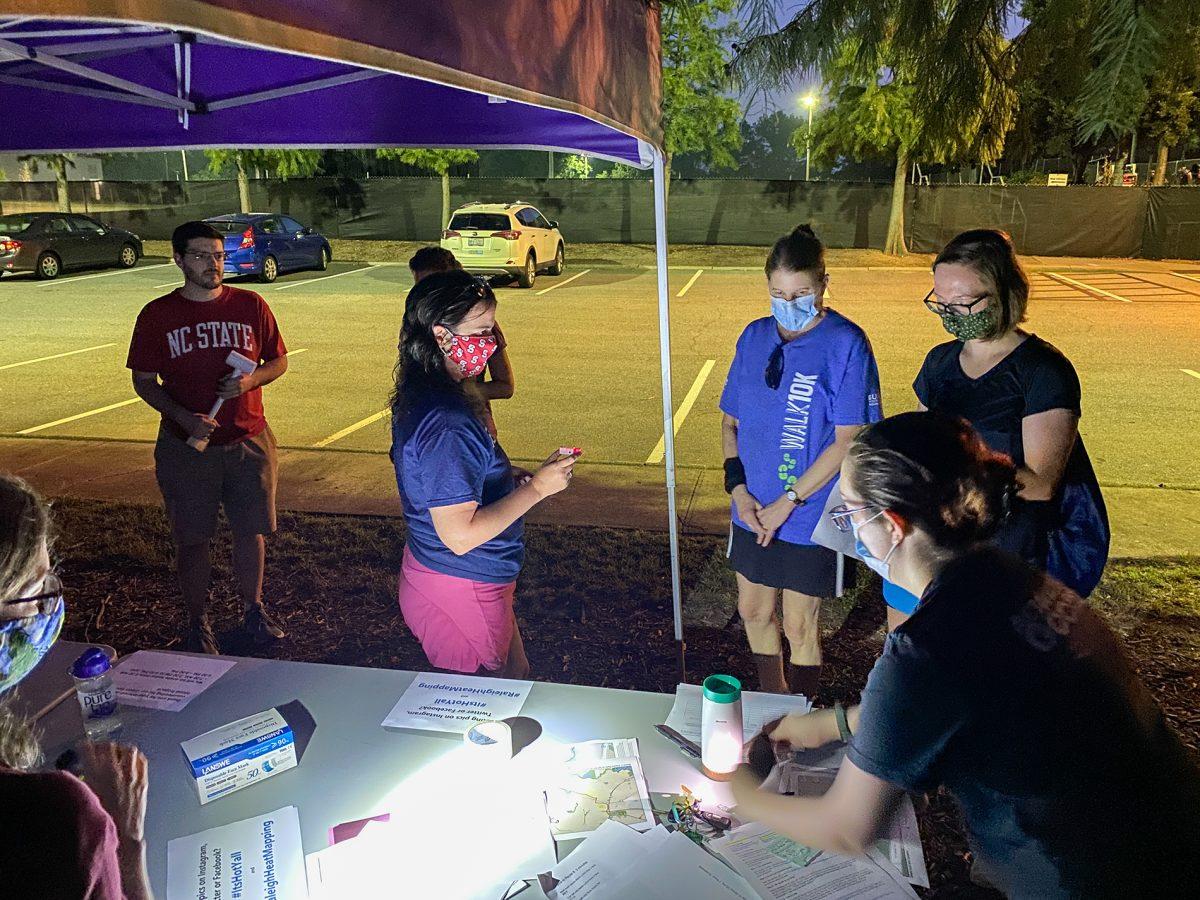The North Carolina State Climate Office (NCSCO), housed in NC State’s College of Sciences, bridges the gap between science and everyday experience by providing accessible climate research, analysis and education across the state.
Science and research connected to climate are becoming more vital as climate change accelerates and poses new threats across the globe. This makes the NCSCO’s job complex, requiring extensive interdisciplinary partnerships as well as diverse backgrounds and perspectives.
Though addressing climate change is not the only goal of the NCSCO, Kathie Dello, the office’s director, explained that it impacts every area of the office’s work in one way or another.
“[Climate change] is the topic of our generation, of my generation, of your generation,” Dello said. “It’s a part of everything that we’re working on and we’re doing. All jobs are climate jobs.”
The NCSCO works with diverse partners from developing streamlined fire data tools with the North Carolina Forest Service to helping the NC Department of Transportation gauge construction conditions based on rainfall.
The office’s current research includes work with the U.S. Fish and Wildlife Service to effectively incorporate climate change considerations into their endangered species status assessments as well as partnerships with frontline communities across the Carolinas to develop climate solutions where climate change is most threatening.
As a Public Service Center, the Climate Office focuses on the application and accessibility of research rather than just the data. Assistant State Climatologist Corey Davis said this application is what makes the NCSCO’s work so important across the state.
“I think plenty of groups on campus are doing research, and unfortunately, a lot of that research never really makes it into any useful project or product,” Davis said. “I think one thing our office prides itself on is [that] a lot of the research we do is ultimately geared toward those applications.”
The NCSCO also functions under the belief that data should be open to the public. Associate Director Sheila Saia said one of her goals throughout her work is transparency and accessibility.
“I’m very passionate about open science and publicly accessible data and reproducible research practices,” Saia said. “I think that there is a ton of data and research being done in climate science that should be publicly accessible and transparent to scientists and the general public.”
To this end, the office provides a number of data resources that are open to the public. The North Carolina Environment and Climate Observing Network (ECONet) provides data from 43 weather towers across the state measuring 12 different atmospheric and soil parameters including temperature, humidity, precipitation and solar radiation. This data can be accessed by anyone at any time for any station across the state.
In addition to ECONet, Cardinal is a new data retrieval system that provides a streamlined interface to request specific climate or weather data.
The Climate Blog also promotes accessibility and communication of climate information. Including its monthly wrap-up of major weather patterns over the past several weeks, the blog features major weather events, ways in which the changing climate can affect everyday life, and research being done by the office.
“We’re a public service center for the state of North Carolina, so part of our job is making sure that the public in North Carolina is aware of what’s going on with our weather and our climate,” said Davis, who runs the blog.
This mindset extends into higher education as well, as the office utilizes the energy and interest of several undergraduate and graduate student interns. Davis began working with the office as an undergraduate summer intern 15 years ago.
The Office has a major focus on education. It works closely with K-12 educators to develop curriculum that helps students interact and pay attention to climate from a young age.
“What we’re teaching is just [to] be good stewards of the environment,” Dello said. “We’re getting a lot more of these lived experiences from kids connecting when they see it’s cold and rainy outside and what’s going on in the day to day to understanding fundamentals of how the atmosphere works.”
On top of research, education and communication programs, Dello said NCSCO is North Carolina’s one-stop shop for all climate related curiosities or concerns, fielding climate questions of all sizes and scopes.
“We get questions from somebody who is planting their garden and wants to know if it’s a good time to put in the tomatoes,” Dello said. “Or from parents of a bride who want to know if it’ll be safe to have an outdoor wedding seven months from now. We also get truly big questions about North Carolina’s future climate and what that means for infrastructure, what that means for public health.”
The NCSCO is working to welcome everyone into the task of understanding and addressing the climate in order to develop effective climate solutions.













